The Boston Shoulder Institute: Commitment to Quality Care
At the Boston Shoulder Institute (BSI), our first and foremost priority is delivering the highest quality of care. Because we measure the success of our treatments based on patient satisfaction, patient-reported outcomes are a top priority. As part of our patient-centered practice, we have integrated a database for collecting patient reported outcomes, giving every patient the opportunity to report on shoulder pain and function as he or she recovers after surgery. We continually monitor this database to assess the real time recovery of our patients.
We go above and beyond the standard practice by conducting in-depth analysis on the outcomes of all our patients. Through practice-based introspection, we are always evaluating and improving the care we provide at our institution. Further, the BSI believes in transparency and the patient’s right to access all the outcomes in our practice. We demonstrate our dedication to this belief by fully disclosing all surgical data, including any operative complications identified at our institute.
Between Drs. Higgins and Warner, the Boston Shoulder Institute performs more than 1000 surgeries annually. Throughout the year, our Research Team collects data and meticulously assesses the outcome of every single surgery performed by Drs. Higgins and Warner, identifying any complications and publishing the data for the public to view on this website. Under the “Defining Complication” section, you will find a general guideline to understanding complications. Scrolling down to “Surgical Outcomes,” you will find our surgical outcomes data, including complications such as infection, readmission, and reoperations.
As part of our commitment to deliver the highest quality of care to our patients, we do not hesitate in taking the unique approach of being a completely transparent practice. By constantly reviewing and sharing our data, we strive to improve our practice and provide nothing less than exceptional, comprehensive care to those who come to the Boston Shoulder Institute.
Boston Shoulder Institute: 2015 Surgical Data
Between Drs. Higgins and Warner, 1030 surgeries were performed in the 2015 calendar year. Below is the breakdown of surgeries by type.
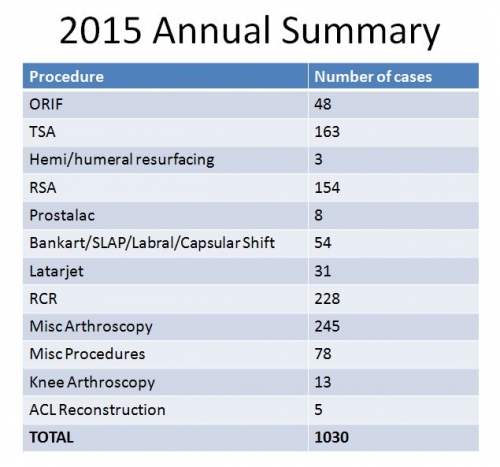
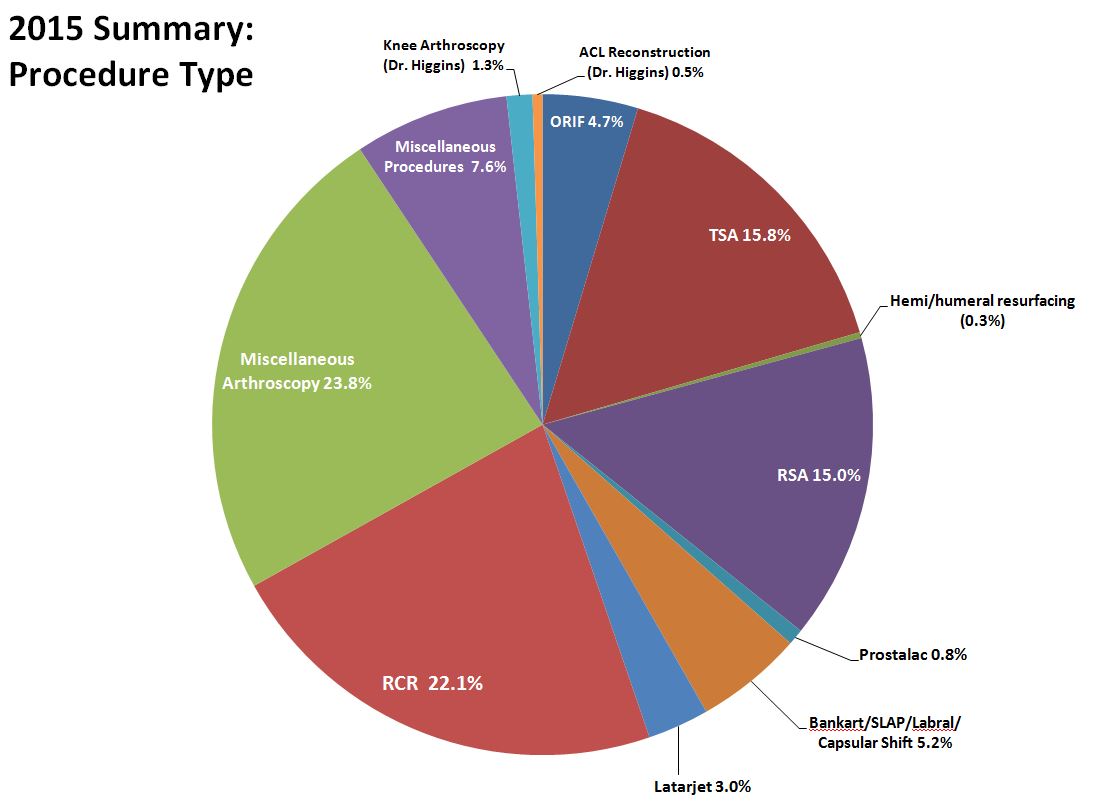
Of the 1030 surgeries, 844 of them (81.9%) were primary surgeries, meaning no prior surgery related to the problem had been performed. 186 of the surgeries (18.1%) were revision surgeries, meaning that a previous operation related to the problem had taken place. This number includes prior operations by Dr. Warner, Dr. Higgins, or by an outside surgeon.
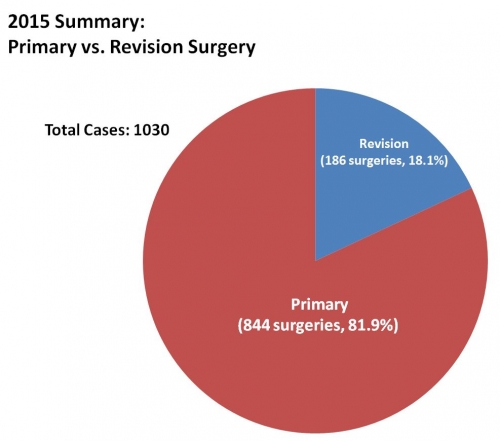 Boston Shoulder Institute: 2015 Surgical Outcomes Data
Boston Shoulder Institute: 2015 Surgical Outcomes Data
Reported below are all the complications experienced at the BSI during the 2015 calendar year. Of the 1030 surgeries performed between Drs. Higgins and Warner, 28 patients (2.7%) were found to have experienced a complication. Please see the data depicted below.
Navigate to the “2014 BSI Quality Reports” tab on the left to access Dr. Higgins’s and Dr. Warner’s individual quality snap shots.
Defining Complication
A complication at BSI is defined as a failed surgical procedure that results in clinically symptomatic presentation not resulting from a traumatic incident, non-compliant post-operative activity, or any other uncontrollable factors. All reported BSI complications are those directly related to the shoulder surgery performed by Dr. Higgins or Dr. Warner, not necessarily including issues resulting from anesthesia, the nerve block, or other general surgical risks. Cases of complications usually include nerve problems, adhesive capsulitis, infection, failed hardware/reconstruction, rotator cuff repair failure, non-union, or bleeding.
Infection – If a patient undergoes a post-operative deep tissue biopsy and the samples lab-test positive for the presence of a microorganism, this is recorded as an infection. The BSI generally defines a reportable infection as any deep tissue samples cultured from the operative site that test positive for the presence of infectious microorganisms (S. aureus, P. acnes, etc.). Superficial infections (such as cellulitis) are generally not considered a reportable infection of the BSI.
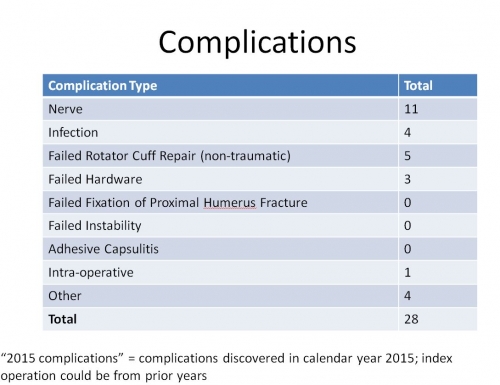
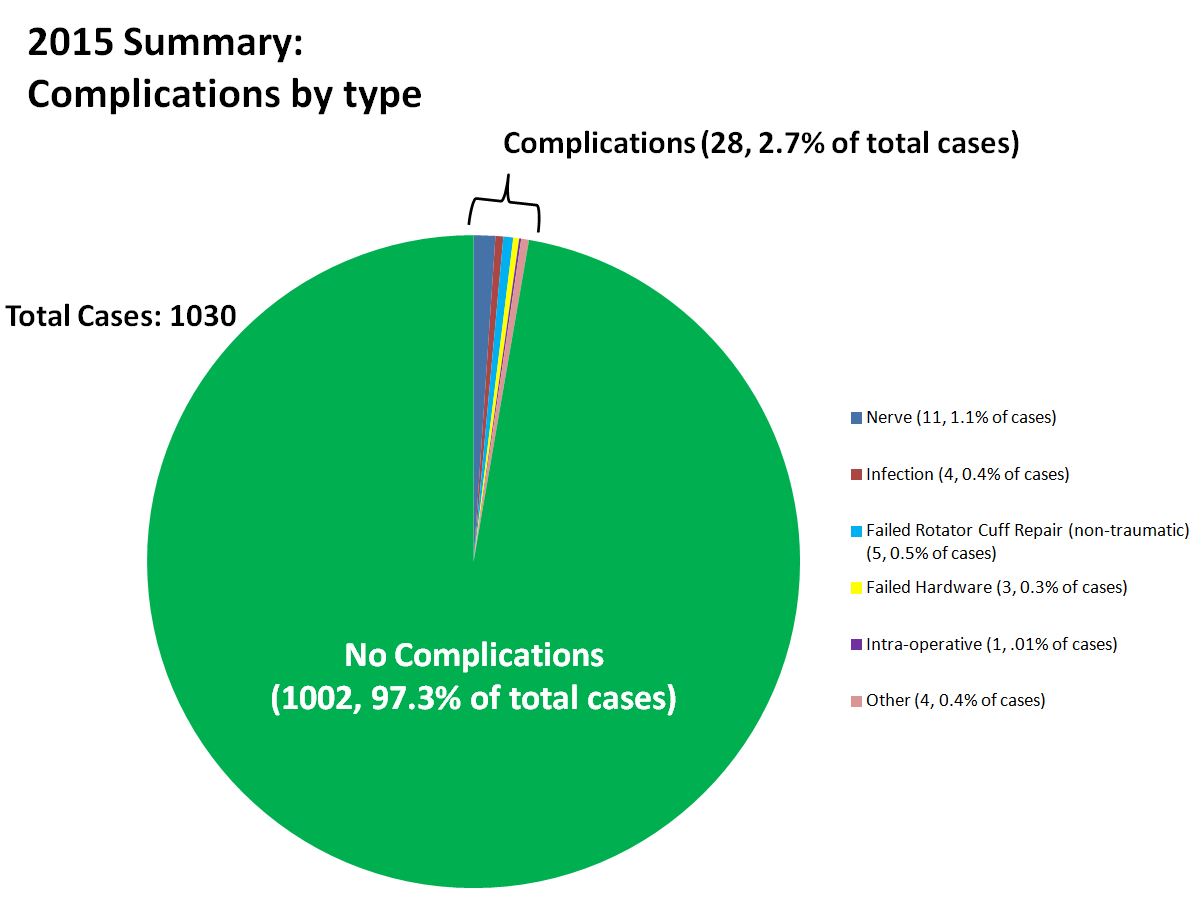 Management of Complications
Management of Complications
For every patient with a complication, Drs. Warner and Higgins (along with the BSI Research Team) closely track their progress. Along with monitoring, some complications require further management. The data below shows how many complications required re-admissions.
Re-admission – A re-admission is defined as any complication that resulted in the patient being admitted to the hospital for resolution. At BSI, re-admission means that a patient operated on by Dr. Higgins or Dr. Warner returns to clinic due to a risen complication and is admitted to the hospital for subsequent care.
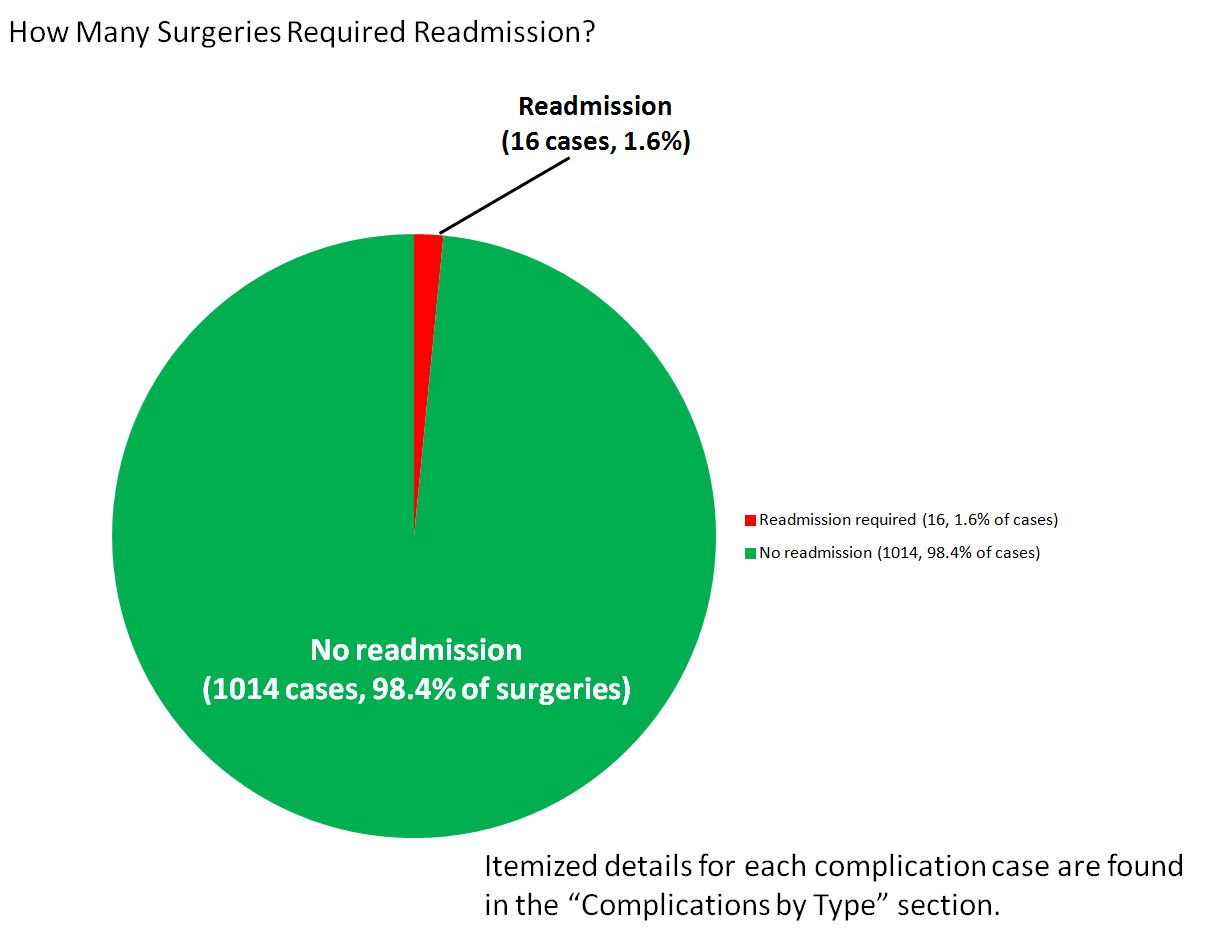
Of the 28 original complications, how many have been completely resolved? The chart below shows this information. Note that for further details on specific complications (for example, ones that are ongoing) additional information can be found in the section below, “Complication Details by Type.”
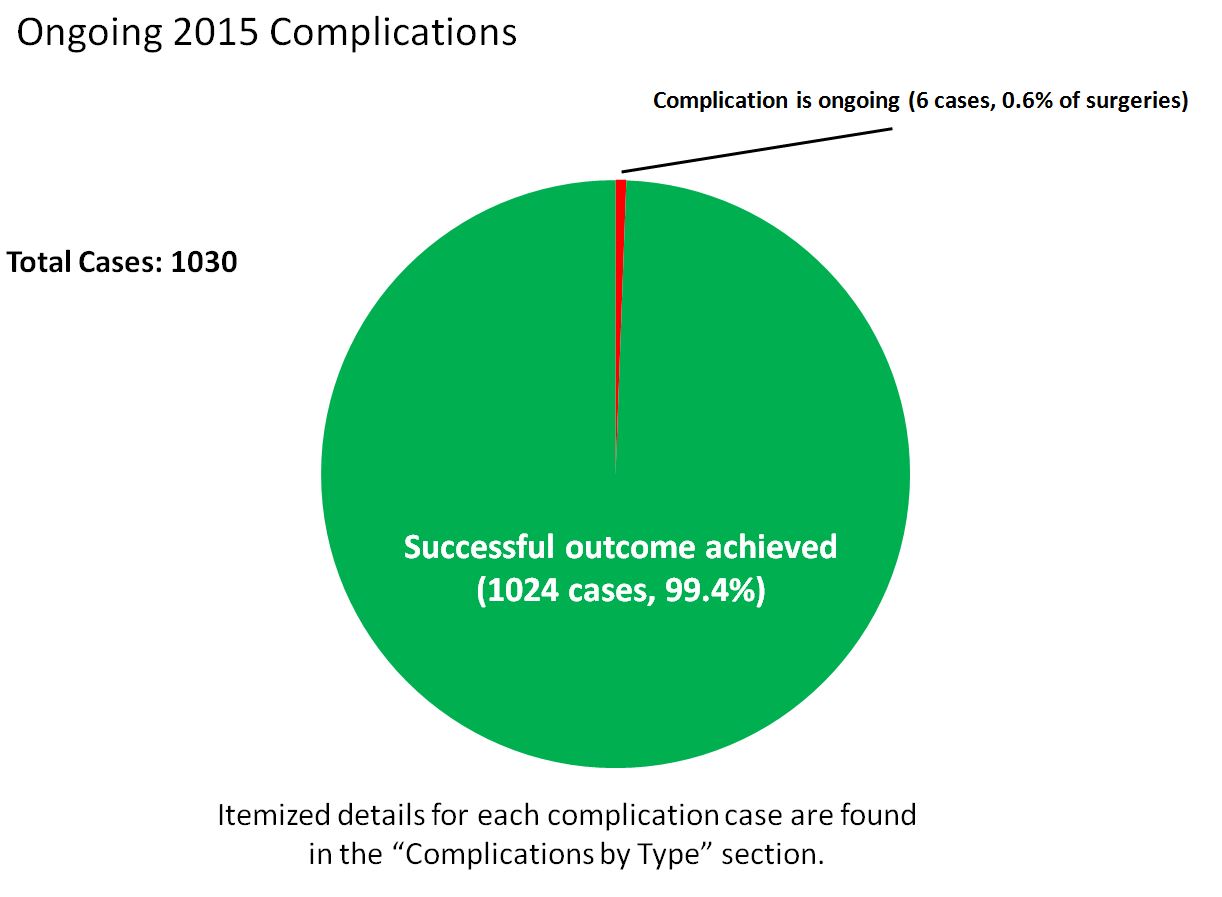 Complication Details by Type
Complication Details by Type
In the spirit of transparency and accountability, BSI is moving to provide the most detail possible for each complication. This unique feature enables patients to be fully informed. Each 2015 complication is detailed below, along with whether it is resolved or ongoing. Wherever possible, the patient’s level of satisfaction with their shoulder is included. The complications are itemized by type.
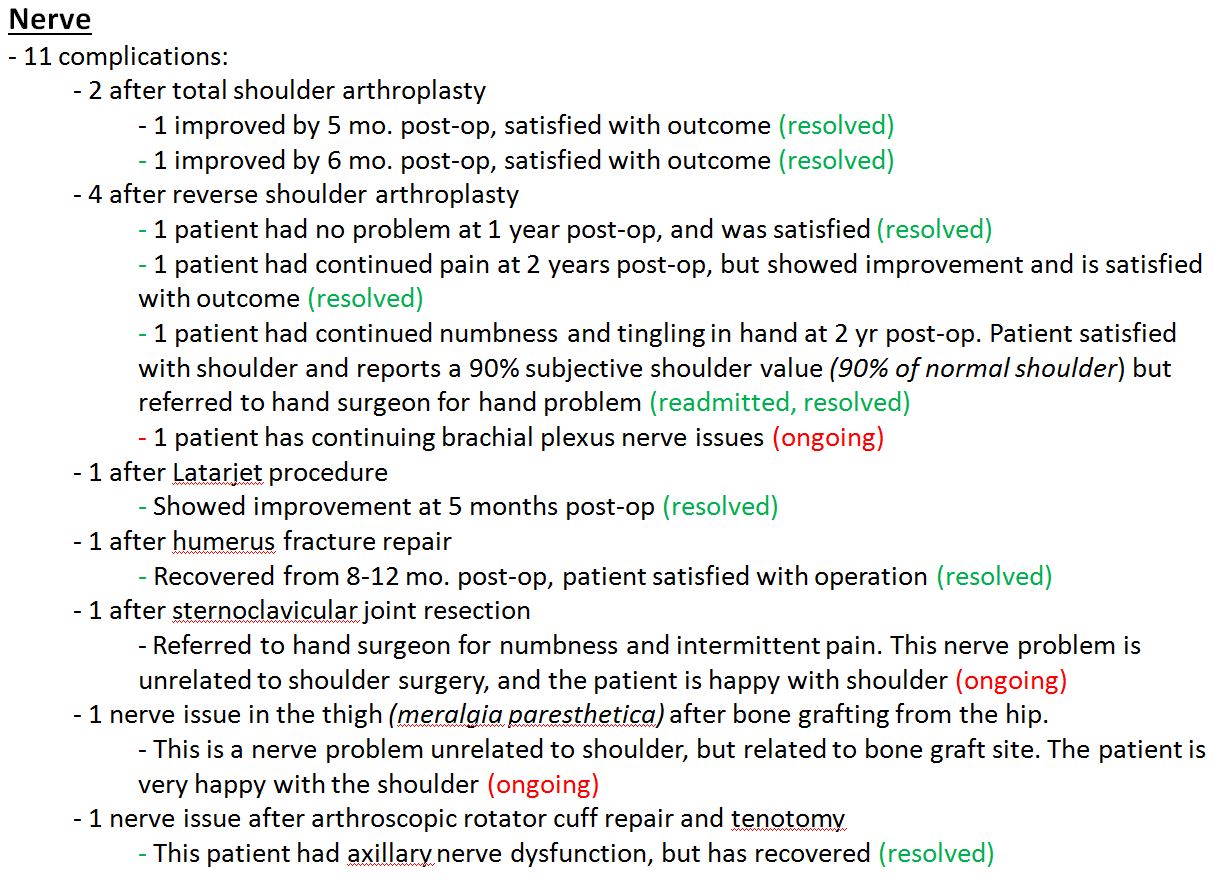

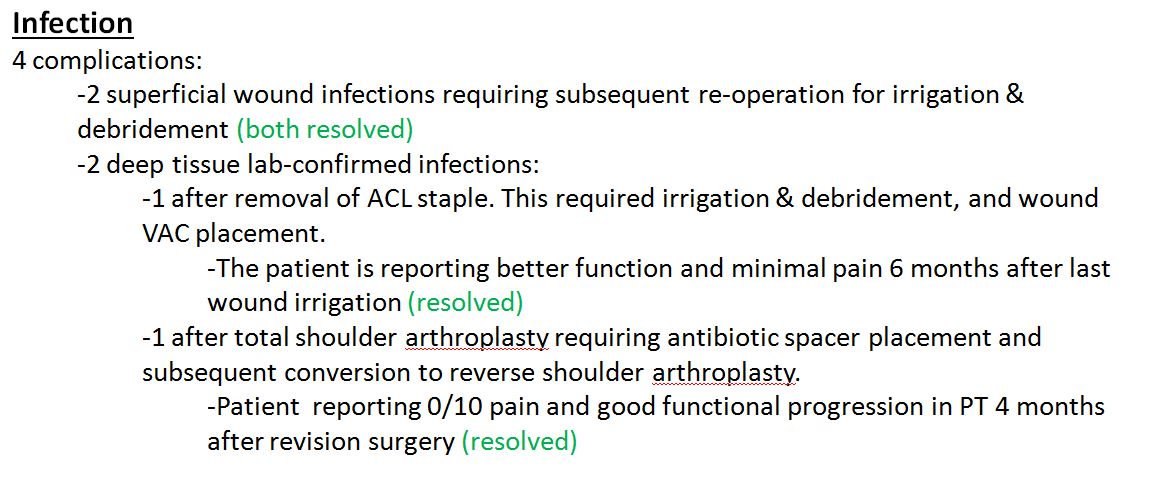
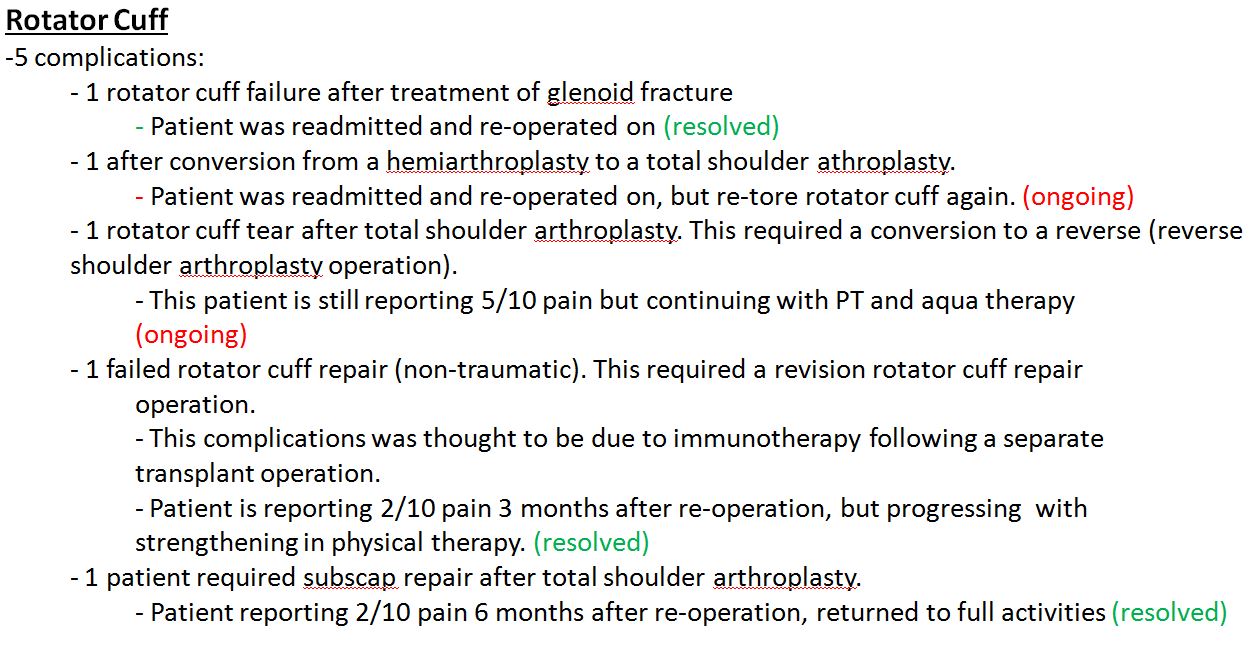

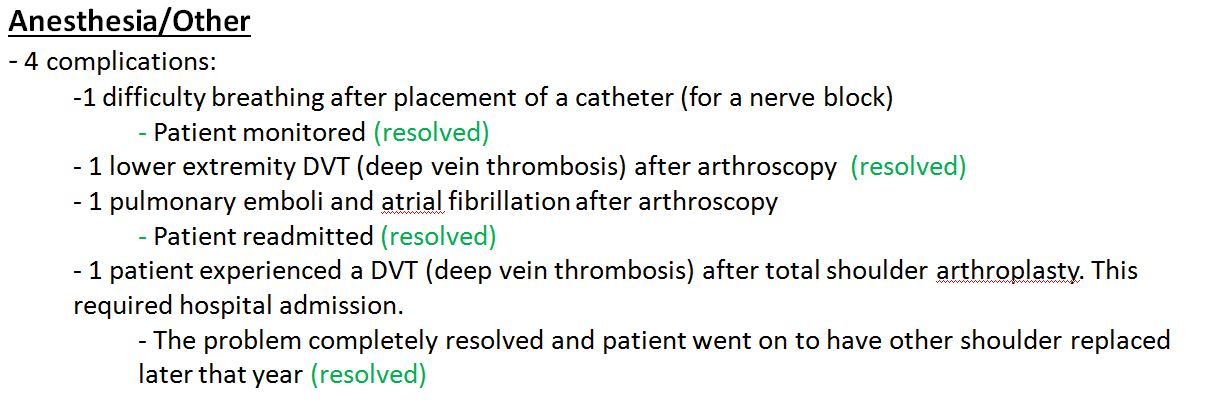
The 2015 Surgical Outcome Reports were reviewed by Dr. Higgins, Dr. Warner, and the ’16-’17 BSI Research Team. Compiled by Henry Fox, AM
